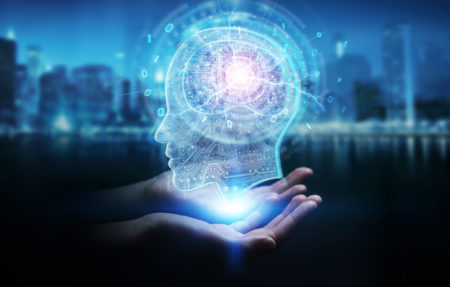Can Alcohol Cause Brain Damage?
Numerous studies have found a link between excessive alcohol consumption and damaged brain function, resulting in conditions such as alcoholic dementia, deficits in memory and learning, mental disorders, and other cognitive damage. Without intervention, the brain can be permanently impaired by chronic alcohol use. With alcoholism treatment, it’s possible to reverse this damage and heal the brain.
According to the National Institute on Alcohol Abuse and Alcoholism (NIAAA) [1], drinking alcohol causes brain damage, ranging from simple “slips” in memory to permanent and debilitating conditions that require lifetime custodial care. And even moderate drinking leads to short–term impairment, as shown by extensive research on the impact of drinking on driving.
A number of factors influence how and to what extent alcohol affects the brain, including:
- How much and how often a person drinks
- The age at which he or she first began drinking, and how long he or she has been drinking
- The person’s age, level of education, gender, genetic background, and family history of alcoholism
- Whether he or she is at risk as a result of prenatal alcohol exposure
- His or her general health status.

Essentially, alcohol is a toxin. Thus, its immediate impact on the body is harmful, especially when consumed excessively. Heavy drinking, or binge drinking five or more days in the past month, can lead to long-term brain damage that simultaneously damages other areas of the body.
When alcohol enters the body, it travels from the stomach and intestines through the bloodstream to various organs. For example, in the liver, spikes in blood alcohol content caused by heavy drinking overload its ability to process alcohol. So, excess alcohol journeys from the liver to other parts of the body, like the heart and central nervous system (brain and spinal cord).
Subsequently, alcohol moves through the blood-brain barrier, directly affecting the brain’s neurons—over 100 billion interconnected neurons in the brain and central nervous system. As a toxic substance, drinking alcohol can damage or even kill neurons.

Get Your Life Back
Find Hope & Recovery. Get Safe Comfortable Detox, Addiction Rehab & Mental Health Dual Diagnosis High-Quality Care at the We Level Up Treatment Centers Network.
Hotline (877) 378-4154Alcohol-Related Brain Damage (ARBD)
The popular drinking term “wet brain” actually refers to a condition within the alcohol-related brain damage family known as Wernicke-Korsakoff Syndrome (WKS). The disease consists of two separate-but-linked forms of dementia. Those with an alcohol use disorder (AUD) are commonly malnourished due to a poor diet. Often, this leads to a thiamine (or vitamin B1) deficiency because alcohol blocks a person’s ability to absorb or use the vitamin. Nearly 80% of people with an alcohol use disorder have a thiamine deficiency; many will develop brain damage like WKS after years of heavy drinking. Typically, patients develop Wernicke’s encephalopathy and are later diagnosed with Korsakoff’s as well.
Symptoms of Wernicke-Korsakoff Syndrome include:
- Confusion
- Paralysis of eye muscles
- Difficulty with muscle coordination
- Impaired learning ability
- Forgetfulness
Other types of alcohol-related brain damage occur outside of direct, damaging interactions between alcohol and brain cells. Those who drink heavily are statistically more likely to injure themselves – and their brains – through falls or fights. Also, damage to other parts of the body will affect the brain over time. For instance, alcoholic hepatitis is inflammation of the liver caused by years of drinking. Because the liver is responsible for filtering out toxins, a dysfunctional liver sends “bad” blood to the brain. The result is hepatic encephalopathy or a buildup of toxins in the brain.
Symptoms of hepatic encephalopathy include:
- Changing sleep patterns
- Altered mood or personality
- Anxiety
- Depression
- Shortened attention span
- Shaking hands
- Problems with coordination
Finally, alcohol-related brain damage may be present in infants subjected to alcohol while in the womb. There is no known safe level of alcohol consumption during pregnancy because of the risk of fetal alcohol syndrome (FAS). Alcohol travels through the umbilical cord to the fetus, where the undeveloped body is unable to process the substance properly. In the US, half of all pregnancies are unplanned, and women may not know they are pregnant until weeks 4 to 6. Thus, the risk of developing FAS is high in women who drink without using effective forms of contraception.
FAS can cause miscarriage, stillbirth, and a number of developmental disorders, including:
- Small head size
- Distinct facial features
- Hyperactivity
- Shorter-than-average height and weight
- Impaired learning ability
- Low IQ
- Sleep and sucking problems during infancy
- Poor vision or hearing
- Heart, kidney, and bone disorders

How Does Alcohol Affect the Brain
Drinking alcohol causes brain damage. Alcohol immediately changes brain chemistry. When consumed, alcohol increases the activity of GABA (Gamma-aminobutyric acid), the major inhibitory neurotransmitter in the brain, and suppresses the activity of the neurons, causing slurred speech, unsteady gait, lapses in short-term memory, and slowed reflexes.
If a person drinks enough, it may result in an alcohol blackout, which means they cannot remember what happened. According to the U.S. Department of Health and Human Services, one survey found that about 40 percent of students who reported drinking said they had blacked out at least once in the prior year.
The brain chemistry changes associated with drinking may take a person through a wide range of moods, including euphoria, depression, mania, aggression, anger, and confusion. Too much drinking in a short period of time may even slow a person’s breathing and heart rate, causing a coma.
Get Help. Get Better. Get Your Life Back.
Searching for Accredited Drug & Alcohol Rehab Centers Near You? Or Mental Health Support?
Even if you have failed previously, relapsed, or are in a difficult crisis, we stand ready to support you. Our trusted behavioral health specialists will not give up on you. Call us when you feel ready or want someone to speak to about therapy alternatives to change your life. Even if we cannot assist you, we will lead you wherever you can get support. There is no obligation. Call our hotline today.
FREE Addiction Hotline – Call 24/7What Part of the Brain Does Alcohol Affect?
Drinking alcohol causes brain damage. According to NIAAA [2], areas of the brain that are especially vulnerable to alcoholism-related damage are the following:
- The cerebral cortex and subcortical areas such as the limbic system (important for feeling and expressing emotions)
- The thalamus (important for communication within the brain)
- The hypothalamus (which releases hormones in response to stress and other stimuli and is involved in basic behavioral and physiological functions)
- The basal forebrain (the lower area of the front part of the brain, involved in learning and memory)
- The cerebellum, situated at the base of the brain, which plays a role in posture and motor coordination and in learning simple tasks.
Alcohol Effects on Brain
Over time, excessive alcohol consumption can damage both the brain and liver, causing lasting damage. Drinking alcohol causes brain damage and excessive alcohol consumption can have long-lasting effects on neurotransmitters in the brain, decreasing their effectiveness or even mimicking them. Alcohol also destroys brain cells and contracts brain tissue. Some people with a history of excessive alcohol use develop nutritional deficiencies that further damage brain function.
Short-Term Effects of Alcohol on the Brain
As soon as alcohol enters the bloodstream, it changes how the brain functions. Moderate consumption of alcohol may cause the following temporary effects:
- Loss of inhibition
- Decreased planning and organizational skills
- Changes in mood and concentration
- Difficulty forming new memories
- Sleepiness
- Depressed mood
- Changes in energy levels
- Memory loss
- Poor judgment
- Reduced motor control, including delayed reflexes that can make driving dangerous
People with severe symptoms of alcohol intoxication or symptoms that last many hours are at risk of alcohol poisoning. The ethanol in alcohol acts like a poison. When the liver is not able to filter this poison quickly enough, a person can develop signs of alcohol poisoning or alcohol overdose. An overdose of alcohol affects the brain’s ability to sustain basic life functions.
Symptoms include:
- Vomiting
- Seizures
- Slow heart rate
- Difficulty staying awake
- Fainting
- Low body temperature
- Low gag reflex, which can increase the risk of choking if a person vomits
- Clammy skin
Drinking alcohol causes brain damage and an untreated alcohol overdose can be fatal. Severe alcohol overdoses may cause permanent brain damage even if the person survives. The higher a person’s blood alcohol concentration, the higher their risk of alcohol overdose. The heavy consumption of high-alcohol drinks is more likely to cause alcohol poisoning. People who have smaller bodies, drink alcohol less frequently, or have a history of liver disease are also more vulnerable to alcohol poisoning.
First-class Facilities & Amenities
World-class High-Quality Addiction & Mental Health Rehabilitation Treatment
Rehab Centers TourRenowned Addiction Centers. Serene Private Facilities. Inpatient rehab programs vary.
Addiction Helpline (877) 378-4154Proven recovery success experience, backed by a Team w/ History of:
15+
Years of Unified Experience
100s
5-Star Reviews Across Our Centers
10K
Recovery Success Stories Across Our Network
- Low Patient to Therapist Ratio
- Onsite Medical Detox Center
- Comprehensive Dual-Diagnosis Treatment
- Complimentary Family & Alumni Programs
- Coaching, Recovery & Personal Development Events
Long-Term Effects of Alcohol on the Brain
Those who drink more heavily are at increased risk for adverse alcohol-related complications, especially if they drink excessively over long periods of time. Long-term health risks of chronic alcohol use include heart, liver, and digestion problems, cancer, immune system weakening as well as mood and sleep disturbances, and the development of other mental health problems, including depression and anxiety.
Wet Brain Alcoholism
Those who use alcohol excessively and for long periods of time also risk thiamine deficiency as a result of poor nutrition, which may result in the development of Wernicke-Korsakoff Syndrome (WKS), sometimes commonly referred to as “wet brain”. This condition can cause persisting mental confusion, eye movement disturbances, difficulty with coordination, and persistent learning and memory problems.
Lastly, long-term alcohol abuse can also lead to the development of an alcohol use disorder (AUD), which may sometimes be referred to as having an “alcohol addiction” or “alcoholism”. An AUD is a compulsive, problematic pattern of alcohol use that persists despite negative consequences to a person’s health, job, and personal relationships.
For a mental health professional to diagnose someone with alcoholism, a person must meet at least two of the following criteria within a 12-month span:
- Spending a significant amount of time trying to obtain alcohol.
- Experiencing cravings for alcohol.
- Drinking while in situations where it’s dangerous to do so, such as while driving or operating machinery.
- Continuing to drink despite familial and relationship issues caused by alcohol use.
- Being unable to fulfill obligations at work, home, or school because of alcohol use.
- Using higher or more frequent amounts of alcohol than originally intended.
- Tolerance, or needing higher amounts of alcohol to achieve previous effects.
- Being unable to cut down on drinking.
- Continuing to drink despite negative physical or mental health consequences.
- Avoiding activities that you once enjoyed so you can drink.
- Experiencing alcohol withdrawal symptoms if you try to stop drinking.
World-class, Accredited, 5-Star Reviewed, Effective Addiction & Mental Health Programs. Complete Behavioral Health Inpatient Rehab, Detox plus Co-occuring Disorders Therapy.
CALL (877) 378-4154End the Addiction Pain. End the Emotional Rollercoaster. Get Your Life Back. Start Drug, Alcohol & Dual Diagnosis Mental Health Treatment Now. Get Free No-obligation Guidance by Substance Abuse Specialists Who Understand Addiction & Mental Health Recovery & Know How to Help.
Alcohol Abuse Treatment
Medically-assisted Detox
Detox is often considered the first stage of treatment. It will help you navigate the complicated process of alcohol withdrawal, but it doesn’t address patterns of thought and behavior that contribute to alcohol use. Various treatment approaches and settings can help provide the ongoing support necessary to maintain long-term sobriety after you complete detox.
Cravings are very common during detox and can be challenging to overcome. This often leads to relapse. Constant medical care provided during inpatient treatment helps prevent relapse. Clinicians can provide necessary medication and medical expertise to lessen cravings and the effects of alcohol withdrawals.
Medication-Assisted Treatments
Medication-Assisted Treatments (MAT) for alcohol use disorder and mental health disorder are commonly used in conjunction with one another. This includes the use of medications and other medical procedures. During your rehab, the staff from your treatment facility will help you identify what caused your addiction and teach you skills that will help you change your behavior patterns and challenge the negative thoughts that led to your addiction. Sometimes, the pressures and problems in your life lead you to rely on substances to help you forget about them momentarily.
Integrated Mental Health Care
Alcohol affects mental health, so people may use it to self-medicate undiagnosed disorders. Rehab centers typically provide mental health screenings, diagnoses, and integrated treatment for co-occurring disorders. In addition, holistic and therapeutic approaches are often used to treat recovering addicts with these conditions.
Behavioral Therapies
Cognitive Behavioral Therapy (CBT) and Dialectical Behavioral Therapy (DBT) can improve addicts’ behavior. CBT targets negative and maladaptive thought patterns as it promotes positive emotions and beliefs, while DBT helps clients address conflicting impulses so they can make healthy choices. Both therapies treat substance abuse and mental health disorders. Therapy also empowers clients to identify, avoid and mitigate cues that trigger drug cravings.
Individual and Group Counseling
Addiction and mental health counseling occur in both individual and group settings. One-on-one treatment sessions may address unresolved trauma, unconscious conflicts, and specific struggles, while group sessions often involve training in life skills, stress management, conflict resolution, and social connections. Group counseling also gives clients the chance to share their thoughts and experiences to develop social support, which is essential for lasting recovery
It is scientifically proven that drinking alcohol causes brain damage. If you have apprehensions to quit drinking because you’re nervous about the effects of alcohol withdrawal, then talk to one of our addiction specialists. Please, do not try to detox on your own because the detox process can be painful and difficult without medical assistance. If you or someone you know regularly exceeds these recommended daily limits or is experiencing effects of alcohol withdrawal, it is important to intervene early. We Level Up NJ has addiction specialists that are standing by to help.

Experience Transformative Recovery at the We Level Up Treatment Center.
See our authentic success stories. Get inspired. Get the help you deserve.



Start a New Life
Begin with a free call to an addiction & behavioral health treatment advisor. Learn more about our dual-diagnosis programs. The We Level Up treatment center network delivers various recovery programs at each treatment facility. Call to learn more.
- Personalized Care
- Caring Accountable Staff
- World-class Amenities
- Licensed & Accredited
- Renowned w/ 5-Star Reviews